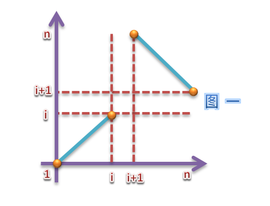
In the above example ord ( thing ) will return an index, but it has to be additionally retrieved while it inherently exists yet still inaccessible. In contrast to other loops, an index variable is not provided. Type furniture = ( chair, desk, bed, wardrobe ) arrangement = set of furniture var thing : furniture begin writeLn ( 'all available pieces of furniture:' ) for thing in arrangement do begin writeLn ( thing ) end end. any unnecessary assignment without successive reads.įor single statements writing a surrounding begin … end frame can be skipped resulting in: If the loop’s body is not entered, then the value might remain unused. The controlVariable exists for usage inside the loop’s body. In case of empty loops (where the body is never executed), even the start value is not loaded. This can be an empty set, or in the case of just the single-element set \displaystyle.Īssuming no other manipulations were made, after the loop the value of controlVariable will be final, unless the the proper condition was not met from the start, then it is undefined (remains unchanged). Not the difference determines the number of iterations, but the cardinality of the set constructed by the expression. This excerpt will print one line with 5, though you might be fooled by such thoughts as “5 to 5 – the difference is zero. However, indirect manipulations are not prevented:įor i := 5 to 5 do begin writeLn ( i ) end controlVariable := 2 – are caught by the compiler reporting “Illegal assignment to for-loop variable "controlVariable"”. While inside in a loop, it is imperative not to mess with the loop variable. Nevertheless, a global variable is always allowed as a control variable. The control variable has to be local inside nested routines.Ī routine is nested, if routine variables tagged with the modifier is nested can store its address. If and as long as controlVariable is not greater than finalValue, the begin … end frame with all its statements is executed.īy reaching end controlVariable is incremented by 1 and the comparison is made, whether another iteration, whether the statement-frame is executed again.īy exchanging to with downto, the variable – in the example controlVariable – is decremented by 1 and the condition becomes “as long as the control variable is not less than the final value.” In this example controlVariable is first initialized with the value of start (but cmp. LLVM) ) this is quite good.For controlVariable := start to finalValue do begin statement end

Lazarus has a different setting and generates also pages with skeleton info only.įor a totally self supported project (no major, continuous corporate sponsors, no dedicated FTEs, either directly it the project (like Firefox) or at sponsors (like e.g. The FPC docs are quite good, there are several thousands of pages (and the doxygen like tool is set not to generate pages without content). Some older versions are still visible on specially Debian and derivatives(because these versions are default in that Debian Stable).įor Delphi of course there are more versions in active use because a new version must be bought (in the Eur/$ 500-600 range). Typically the two last versions of Lazarus are in active use (1.4.4 and rc's for the upcoming 1.6). Both work in FPC and Delphi, though inttostr might require a object oriented (Delphi alike) mode in FPC.Ī string is not an object btw, but a first class native type.īasically Lazarus/FPC and Delphi are the only really active native Pascal products.

As said there is inttostr, which is Delphi's way of doing it.


 0 kommentar(er)
0 kommentar(er)
